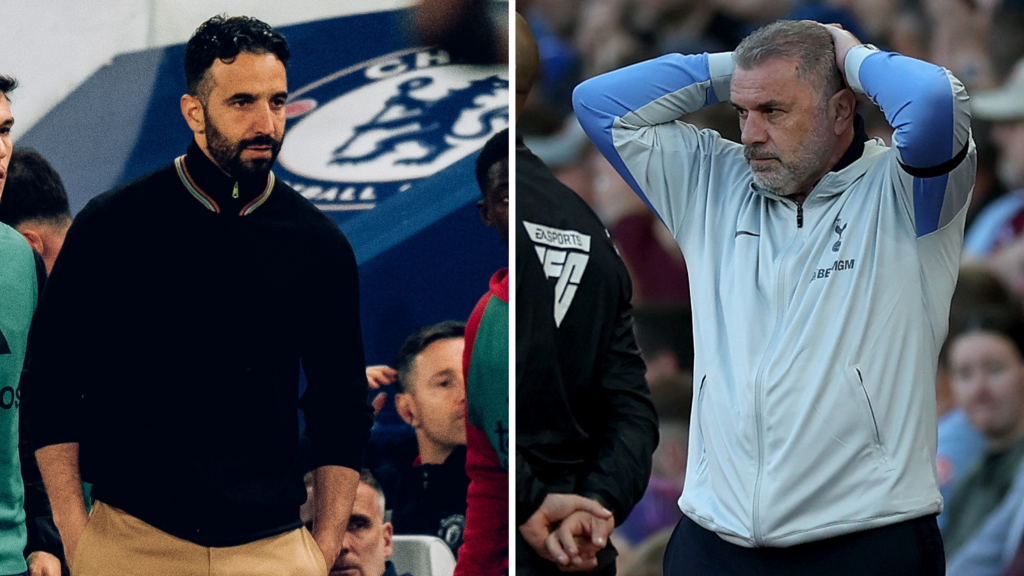Manchester United and Tottenham Hotspur will contest the Europa League final in Bilbao on Wednesday, May 21st.
Both teams, facing disappointing domestic seasons, aim to secure the Europa League trophy and a Champions League berth.
Their recent Premier League performances have been underwhelming, both languishing in the lower half of the table. A European victory would provide a crucial positive end to their campaigns.
Penultimate league matches ended in defeat for both: Manchester United lost 1-0 to Chelsea, their 18th league loss of the season; while Tottenham suffered a 2-0 defeat against Aston Villa, their 21st league defeat.
With the Europa League final now paramount, how are both sides positioned?
Tottenham risk ending the season just one place above the relegation zone.
Friday’s defeats extended their domestic struggles. Tottenham’s 25 losses across all competitions this season is a club record, while Manchester United’s 18 league defeats are their most since the 1973-74 relegation season.
United’s eight-game winless league run (D2 L6) is their longest since a similar streak in 1989-90. Spurs have won only one of their last 11 Premier League games (D2 L8), and their 12-game run without a clean sheet is their longest since 2010.
However, both teams’ European form contrasts sharply with their domestic struggles; they are unbeaten in their last five Europa League matches, winning four en route to the final.
Chelsea secures fourth place with victory over Man Utd
Aston Villa defeats Spurs, moving into the top five
Team selections in Friday’s games offered insights into the managers’ Europa League strategies. United’s manager, Erik ten Hag, fielded a strong XI, including Bruno Fernandes. Tottenham’s Ange Postecoglou rested several key players.
Postecoglou rotated his squad, giving starts to players like Antonín Kinsky in goal, while Vicario, Solanke, Johnson, Richarlison, and Porro were benched. Ten Hag, having rested some players against West Ham, recalled his regular starters against Chelsea. Goalkeeper Andre Onana, absent against West Ham, returned.
Ten Hag emphasized maintaining competitiveness before the final rather than prioritising rest, stating to BBC Sport, “We have five days to prepare [for the Europa League final], two days to fully recover and then two days to prepare.”
Tottenham boasts a strong head-to-head record against United this season, winning both league encounters and their Carabao Cup clash. Their 63 league goals, the most among teams outside the top six, highlight their attacking prowess, exceeding United’s tally by 21 goals. However, defensive frailties are evident with 61 league goals conceded (compared to United’s 54).
Postecoglou will be encouraged by Son Heung-min’s improved performance against Villa after a foot injury. Son aims to end his trophy drought after a decade with the club.
United’s attacking woes continue, with Rasmus Højlund struggling for form, prompting criticism from Roy Keane.
Ten Hag’s risk of playing a strong team paid off; Tottenham have more injury concerns after Pape Sarr’s first-half substitution against Villa, though Postecoglou described it as precautionary. Dejan Kulusevski and James Maddison are already ruled out.
Injuries have impacted both clubs. Data from PremierInjuries.com shows Tottenham had the third-worst injury crisis in the Premier League, and United the fifth, though Brighton, despite their injury issues, are performing well in the league.
Despite their domestic struggles and injury concerns, a one-off final presents a fresh opportunity. United seeks a second Europa League title this decade, while for Tottenham, a victory would be monumental.
Expert opinions vary; Roy Keane favors United due to their history and experience in big games, while Jamie Redknapp believes it’s a 50/50 contest, emphasizing the potential impact of a trophy win on Ange Postecoglou’s future at the club.
Listen to the latest Football Daily podcast
Get football news sent straight to your phone

